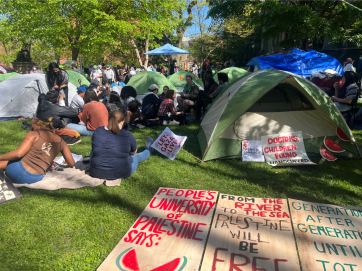Shifting Sands
Unsound Science and Unsafe Regulation
Thursday, May 20th | 2 pm ET
Webinar Event
Modern science suffers from an irreproducibility crisis in a wide range of disciplines, from public health to social psychology. Far too frequently, scientists cannot replicate claims made in published research. This poses serious questions to policymakers. How many federal regulations reflect irreproducible, flawed, and unsound research? How many grant dollars have funded irreproducible research? In short, how many government regulations based on irreproducible science limit America’s freedom and prosperity?
On Thursday, May 20th at 2 pm ET, join the National Association of Scholars as we launch a new project, Shifting Sands: Unsound Science and Unsafe Regulation. This series of reports will examine how irreproducible science affects select areas of government policy and regulation governed by different federal agencies. This first report on PM2.5 Regulation focuses on irreproducible research in the field of environmental epidemiology, which informs the U.S. Environmental Protection Agency’s (EPA) policies and regulations. It assesses scientific research that associates airborne fine particulate matter smaller than 2.5 microns in diameter (PM2.5) with mortality, heart attacks, and asthma.
Over the last 40 years, the EPA has slowly imposed increasingly restrictive air quality regulations based on research sponsored by the agency. However, the scientific world’s professional incentives reward exciting research with new, positive (significant association) claims—but not reproducible research. This encourages researchers, wittingly or negligently, to use a variety of statistical practices to produce research that blows wind into the sails of their careers with little regard for the reproducibility of their experiments.
Join NAS for this conversation on how government agencies and public policy are harmed by the irreproducibility crisis. The discussion will also include recommendations to bring public agency methodologies into alignment with the best available science by adopting resampling methods and transparent research.
This event will feature the report authors, NAS Director of Research, David Randall; Adjunct Professor in the School of Public Health at the University of Alberta-Edmonton, Warren Kindzierski; and Director of the Shifting Sands Project, Stanley Young. Additional speakers include Jay Lehr, Director of Science at the Heartland Institute; Steve Milloy, founder of JunkScience.com; and Donald van der Vaart, former North Carolina Secretary of Environmental Quality.













